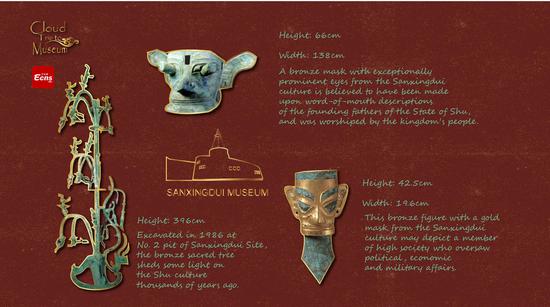
(Photo/Pixabay)
In the past few years, China has taken sustainable fishing seriously, introducing major new regulations in 2020 to protect ocean biodiversity. Now, blockchain technology is providing another tool to help enforce ethical fishing industry practices, by authenticating the sourcing and labelling process every step of the way. This was previously thought to be an impossible task.
Every day, billions of fish are taken from the oceans, with only a fraction of them actually reaching dinner tables. Not only is waste part and parcel of many unethical fishing practices, but illegal and unregulated fishing makes up to 30 percent of the world's total fish intake, according to a study published by Marine Policy. This means that as many as one in three fish on your dinner plate may be caught illicitly, and consumers would be none the wiser that they are contributing to the biodiversity crisis in our oceans. According to the United Nations, as much as two-thirds of the world's fishing grounds are overfished to the point where they are drastically damaging ocean ecosystems.
By the time sea creatures reach the international supply chain, they are faceless parcels of meat on huge conveyor belts mixed in with countless others from around the world, ready to be packaged and delivered faceless to retailers and restaurants around the world. A 2013 genetic testing study by conservation group Oceana found that as many as 44 percent of seafood samples taken from the high street were mislabeled. Tracing the origins of a single tuna in the midst of billions of tons of biomass puts the analogy of the needle in a haystack to shame.
Blockchain technology, however, may be the solution to this daunting task. Using digital ledgers which authenticate each stage with the innovation's signature tamper-proof database will be a game changer. Typically reserved for financial transactions where transparency is key, their application to the fishing industry could verify the accuracy of a fish's journey from the net to the supermarket shelf.
Fisheries in Australia have already been using the technology to guarantee the origin of high-value fish such as the Patagonian toothfish, where illegal fishing has led to the near-disappearance of the species in the southern oceans. Tuna fishing industries are also starting to take on board this new way of verifying their ethical practices to consumers in places such as Fiji and Japan.
Reusable radio identification tags are attached to high-valued and endangered fish after they are caught, and information regarding the fish is uploaded to a database via an app, easy to use for fisherman on the go. The tags follow them to processing facilities, where data of the journey is made available every step of the way. QR codes for each catch then become accessible, giving each fish a journey which vouches for its sustainability.
It is only a matter of time before big fishing nations adopt this technology, which will no doubt become a mainstay of our meals in the coming years. Illegal fishing is an issue which China has taken seriously in recent years, with the last 24 months full of new tightening regulations with much harsher penalties for fishing boats and companies that do not respect the law.
China, with its large population and extensive fishing industries, will no doubt be an important country in adapting blockchain technology to its seas, as it develops. No other nation will have such control over the world's ocean biodiversity. The country is widely regarded as the largest distant water fishing power in the world, so its efforts in improving fishing and supply chain ethics worldwide will have a huge impact. The action that the government is taking now will only compound with effect, as new technology becomes available to facilitate it.
Barry He is a London-based columnist for China Daily.


















































